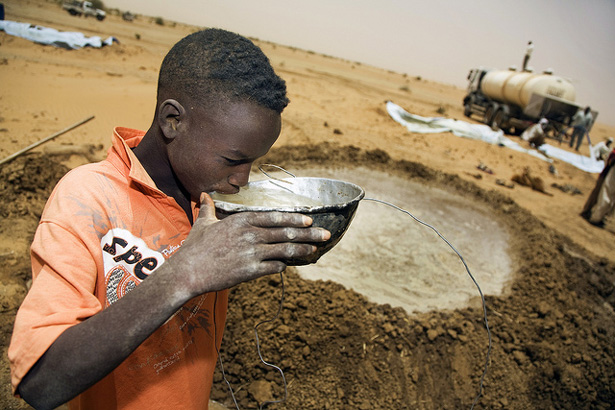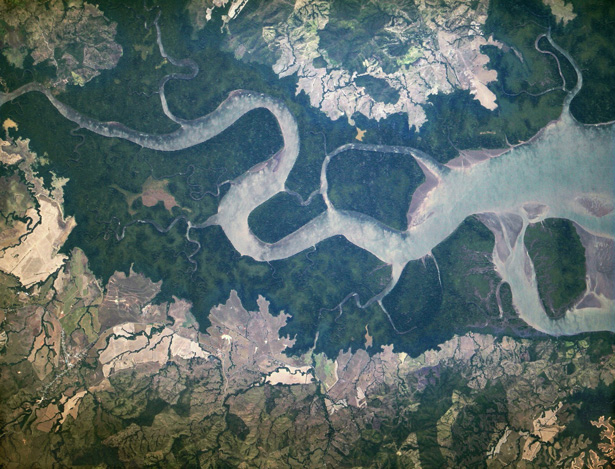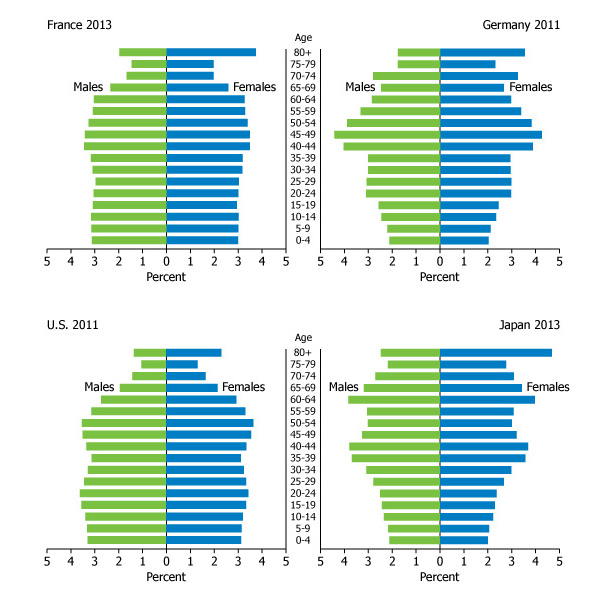-
ECC Platform
Interview With Elizabeth Deheza on Climate-Induced Migration and Security in Mexico
›May 17, 2013 // By Wilson Center Staff
The original version of this article appeared on the Environment, Conflict, and Cooperation (ECC) Platform.
Climate-induced migration in Mexico is a complex issue and the future impact of this phenomenon is neither clear nor agreed upon. The Environment, Conflict and Cooperation (ECC) team talked to Elizabeth Deheza from the Royal United Services Institute for Defense and Security Studies. She and Jorge Mora are the authors of the recent study “Climate Change, Migration and Security: Best-Practice Policy and Operational Options for Mexico.”
-
Backdraft: The Conflict Potential of Climate Change Adaptation and Mitigation (ECSP Report 14)
›Amid the growing number of reports warning that climate change could threaten national security, another potentially dangerous – but counterintuitive – dimension has been largely ignored. Could efforts to reduce our carbon footprint and lower our vulnerability to climate change inadvertently exacerbate existing conflicts – or create new ones?
-
Looking Back to Get Ahead: FEMA’s Strategic Foresight Initiative on Natural Disaster Preparedness
›
Natural disasters have dominated news coverage in the past several years, with many observers noting a distressing rise in the frequency and scale of disasters as well as rising costs. Despite these worrying trends, a critical mass of leadership and public support for doing something about it is emerging.
-
Matthew Berger, The Interdependent
A Global Thirst for Water Security
›May 10, 2013 // By Wilson Center Staff
The original version of this article, by Matthew Berger, appeared on The Interdependent.
Last summer, after walking for days to a refugee camp across the South Sudan border, some Sudanese refugees reportedly chose to dig holes to reach muddy water rather than face the fist-fights breaking out around a failing tap. Boreholes dug by aid agencies collapsed in the crumbling soil. Even the coming rainy season brought more challenges than relief, washing out roads used by water tanker trucks and threatening the camp with flooding.
-
Putting Mali Back Together Again: An Age-Structural Perspective
›May 9, 2013 // By Richard Cincotta
Once considered a model for Sahelian democracy, Mali’s liberal regime (assessed as “free” in Freedom House’s annual survey of democratic governance continuously from 2000 to 2011) virtually disintegrated in March 2012 when a group of junior army officers, frustrated by the central government’s half-hearted response to a rebellion in the state’s vast northern tier, found themselves – somewhat accidently – in control of the state.
-
What Does It Take to Cooperate? Transboundary Water Management Around the World
›
Water is the foundation of human society and will become even more critical as population growth, development, and climate change put pressure on already-shrinking water resources in the years ahead. But will this scarcity fuel conflict between countries with shared waters, as some have predicted, or will it create more impetus for cooperation?
-
Lessons From Kenya and Malawi on Combining Climate Change, Development, and Population Policy
›“The combined effects of rapid population growth and climate change are increasing food insecurity, environmental degradation, and poverty levels in Malawi and Kenya,” said Clive Mutunga, a senior research associate at Population Action International (PAI).
-
Carl Haub, Demographics Revealed
A Tale of Four Pyramids
›April 30, 2013 // By Wilson Center StaffThe original version of this article, by Carl Haub, appeared on Demographics Revealed.
There has been quite a bit made in the media and in blogs about low birth rates in industrialized countries. Quite correctly, many people (and countries!) are concerned that unprecedented aging and a dearth of younger people are leading to serious pressure on national budgets from a rising burden of support for the elderly because of a declining group of tax-paying workers. But the situation is far from equal everywhere, and less is written about that.
Showing posts from category security.









